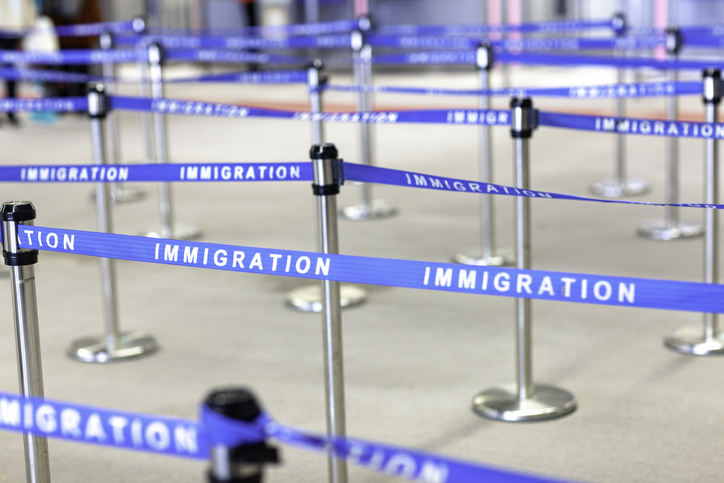The government has published a Statement of Changes in Immigration Rules aiming to deliver COVID-19 concessions on some routes, implementing changes to ID requirements for people arriving in the UK as well as multiple other changes to the current immigration system.
Use of ID cards
EEA and Swiss nationals and their family members will still be able to use their national identity cards to enter the UK, if they have been granted or are eligible for, pre-settled or settled status under the EU Settlement Scheme.
All other EEA and Swiss nationals will be required to use their passport to enter the UK.
COVID-19 concessions
Multiple COVID-19 concessions have been incorporated into the rules, including:
- Concession for Tier 1 (Entrepreneur) migrant who is unable to meet the two-full time jobs requirement. If the migrant’s business has been negatively impacted by the pandemic, they may extend their leave, provided that they have created the equivalent of two full-time jobs for settled workers at the time of application. There is no need to demonstrate that the jobs existed for a minimum period of 12 months.
- Concession for EU Settlement Scheme applicants. Those who have exceeded the number of absences may be able to use the COVID-19 concession to explain their absences.
- Concessions for Skilled Worker and Tier 2 Sportsperson, who have spent time waiting for their decision to be included in their 5-year continuous residence period for settlement.
International Sportsperson
On 11 October 2021, the T2 and T5 Temporary Worker routes for professional sporting workers has been replaced by the International Sportsperson route, which is looking to simplify visa arrangements. Dual level of assurance of an endorsement from a Sports Governing Body and a Certificate of Sponsorship from a club is still required. The new route is points-based, aligning it with the points-based system. Those who apply to stay longer than 12 months will also have to demonstrate their English Language ability.
Global Talent Route
Changes have been introduced to the Global Talent route, including
- Culture endorsement criteria allowing individuals to submit evidence relating to activities of a group, that also specifically mention the applicant and supports their claim of exceptional talent and promise.
- Evidential requirements for digital technology endorsements have been amended to include accepting an applicant’s position as board member for a product-led digital technology as evidence of exceptional talent and reduce the number of examples required for each exceptional promise criteria to at least one.
- Endorsement criteria for science, engineering, humanities and medicine fields now have an extended eligibility period for the fellowship fast track pathway from 12 months to five years. The requirement to have an academic representative on interview panels to cover research and innovation representatives has also been expanded, recognising that not all roles will be in an academic setting.
The Appendix Global Talent: Prestigious Prizes has been expanded to include an additional 70 eligible prizes.
Youth Mobility Scheme
The Youth Mobility Scheme will be expanded to include India and Iceland from the 1 January onwards. For more information read our article on the new Youth Mobility Scheme, see below.
Afghan Locally Employed Staff (LES)
The Afghan relocation and assistance policy and ex gratia scheme, enabling current and former Afghan LES and their family members to relocate to the UK is not available to those who are outside of Afghanistan.
The five years’ limited leave will be replaced with indefinite leave to enter the UK. Those already in the UK may apply for indefinite leave to remain before their limited leave expires.
FSP can advise you on all aspects of immigration and will keep you up to date with the latest developments as they are released from the Home Office.
If you require our assistance, please contact our Head of Immigration, [email protected].

